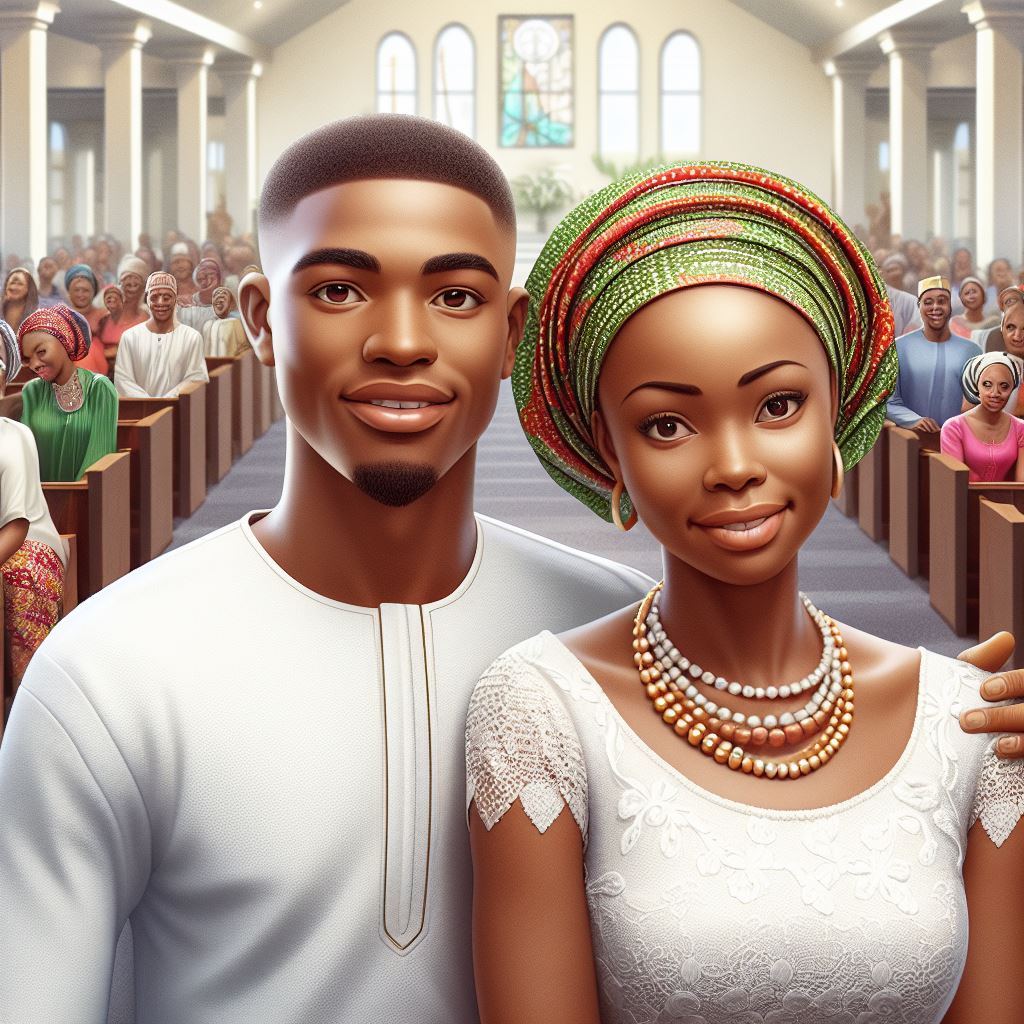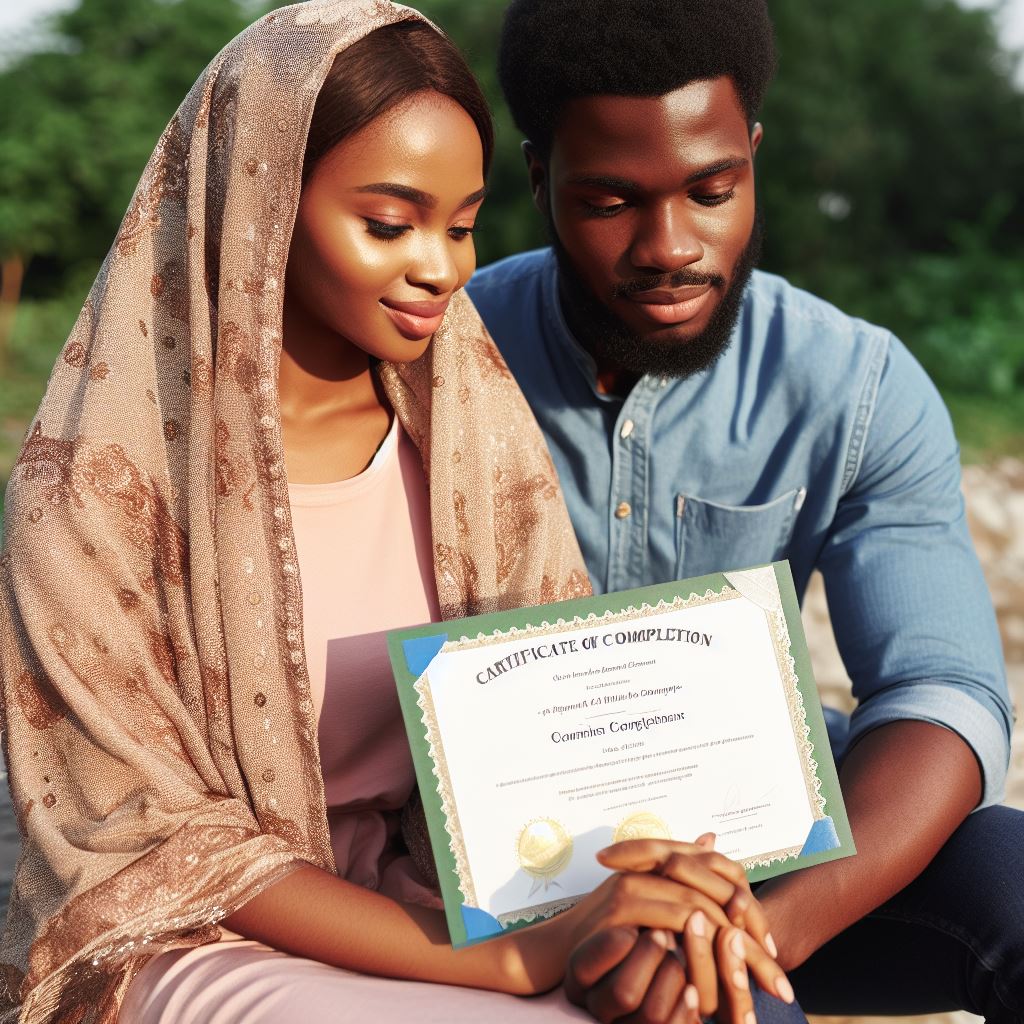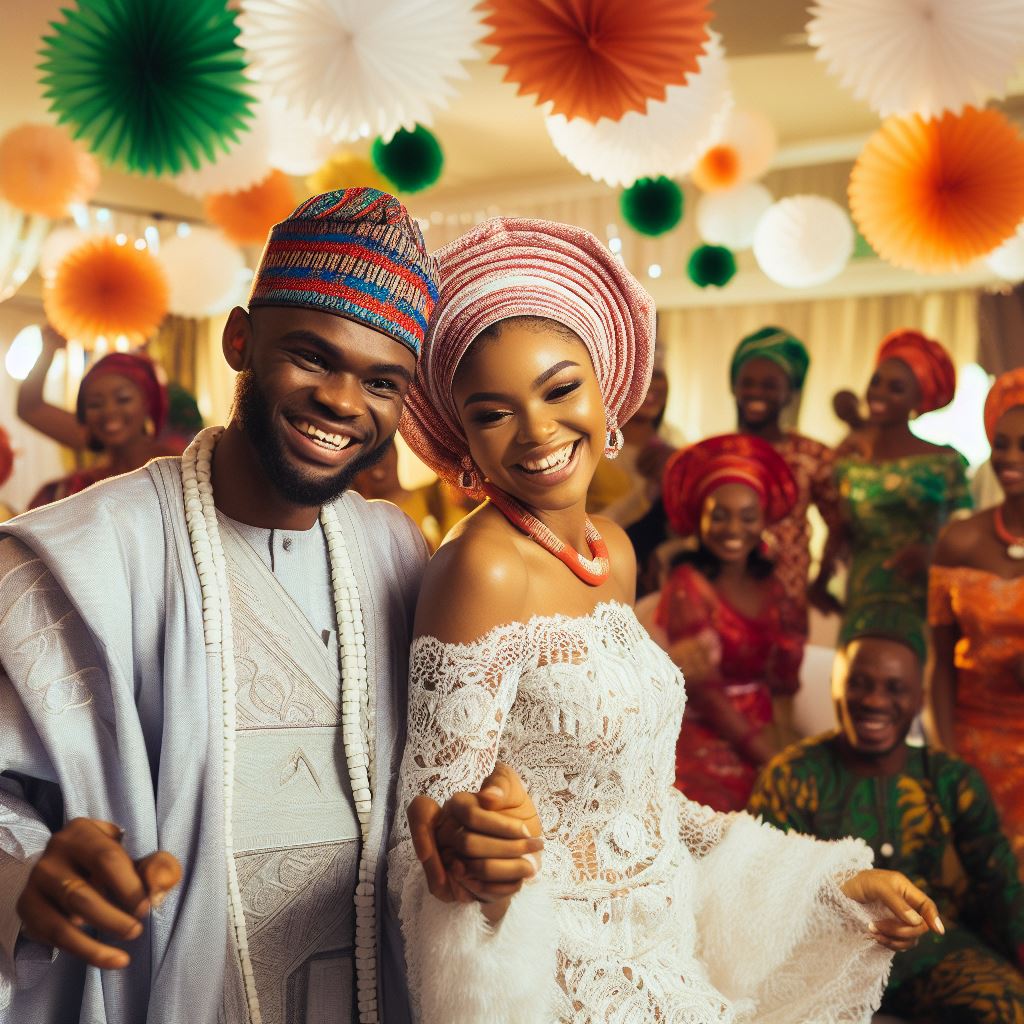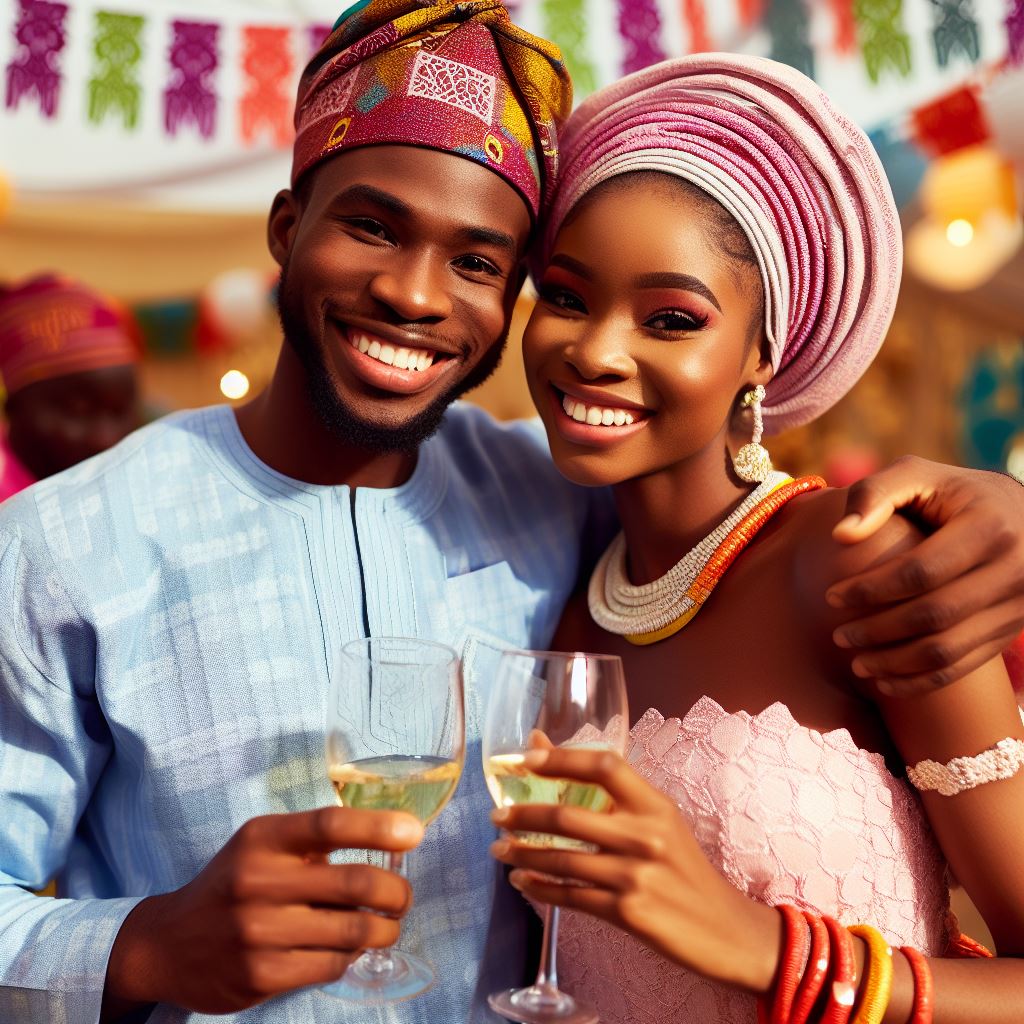Introduction
Overview of Muslim weddings in Nigeria
Nigeria, known for its rich cultural heritage, celebrates Muslim weddings with great pomp and splendor.
Importance of anniversary celebrations in Nigerian Muslim culture
Anniversary celebrations hold a significant place in Nigerian Muslim culture, symbolizing love and unity within marriages.
In Nigeria, Muslim weddings are vibrant affairs that showcase the country’s diverse cultural tapestry.
These weddings are not just about joining two individuals in matrimony but serve as a platform for families to come together in celebration.
The ceremonies include a series of rituals and traditions that vary depending on the ethnic group.
One of the essential aspects of Nigerian Muslim culture is the significance placed on anniversary celebrations.
Every milestone of married life is commemorated with joy and gratitude.
Muslim couples actively participate in these celebrations, embracing the opportunity to reflect on their love, commitment, and shared journey.
Anniversary celebrations in Nigerian Muslim culture serve as a reminder of the bond that keeps couples together through thick and thin.
These celebrations reinforce the importance of family values and unity, symbolizing the endurance and strength of their relationship.
During anniversary celebrations, families and friends gather to offer prayers, exchange greetings, and share in the happiness of the couple.
Traditional Nigerian cuisine is prepared and enjoyed together, adding to the festive atmosphere. Additionally, gifts are exchanged as gestures of love and appreciation.
Basically, the celebration of milestone anniversaries is a cherished tradition in Nigerian Muslim culture.
It not only brings joy to the couple but also strengthens relationships within families and communities.
These celebrations serve as a testament to the lasting love and commitment found in Nigerian Muslim marriages.
Significance of Anniversaries in Nigerian Muslim Culture
Celebration of marital commitment and love
- Anniversaries hold a special place in Nigerian Muslim culture as they provide an opportunity to celebrate the commitment and love between spouses.
- It is a time to reflect on the journey of marriage and appreciate the efforts made by both partners.
- Through festivities and gatherings, couples are able to cherish their bond and reaffirm their love for each other.
Reflection on the past year and gratitude for blessings
- Nigerian Muslims deeply value the practice of gratitude and anniversaries serve as a reminder to reflect on the blessings received during the past year.
- It is a time to express gratitude to Allah for the companionship, love, and happiness experienced in the marriage.
- This reflection also helps couples acknowledge and learn from the challenges faced, fostering personal growth and strengthening the marital bond.
Strengthening of marital bond and renewing of vows
- Anniversaries provide an opportunity for couples to strengthen their marital bond by recommitting to each other.
- Renewing vows acknowledges the growth and development both individuals have experienced and signifies their ongoing commitment to the marriage.
- The act of renewing vows in the presence of family and friends acts as a public declaration of love and loyalty.
Generally, anniversaries hold great significance in Nigerian Muslim culture as they allow couples to celebrate their commitment, reflect on blessings, and strengthen their bond.
Read: Anniversary Reflections: Nigeria’s Romantic Traditions
Traditional Muslim Anniversary Greetings in Nigeria
Muslims in Nigeria have unique ways of expressing their blessings and well wishes during anniversaries.
These greetings are deeply rooted in their culture and religion.
Let us take a closer look at some of the traditional Muslim anniversary greetings in Nigeria.
“Barakah ala Tawuusik”
This Arabic phrase translates to “May blessings be upon your union.”
It is a prayerful expression of hope and goodwill towards the couple celebrating their anniversary.
The term “Tawuusik” refers to the peacock, which symbolizes beauty and prosperity in Islamic culture.
By invoking blessings upon the union, the greeter wishes the couple an abundance of happiness and prosperity throughout their married life.
“Minha Ayam Mutma’inah”
This greeting translates to “Wishing you blissful years together.”
It reflects the desire for the couple to have a harmonious and contented life together.
The term “Minha” refers to the years spent in marriage, while “Ayam Mutma’inah” signifies a state of tranquility and satisfaction.
By uttering this phrase, the greeter expresses their hope that the couple’s anniversary marks the beginning of many joyous and fulfilling years ahead.
“Qalb as-Salam”
This phrase means “May your hearts be filled with peace and love.”
It emphasizes the importance of emotional well-being and love within a marriage.
The term “Qalb” refers to the heart, which symbolizes the core of human emotions and relationships.
By bestowing this greeting upon the couple, the greeter wishes them a union filled with peace, serenity, and enduring love.
In Nigeria, these traditional Muslim anniversary greetings are more than just words.
They embody the sincere wishes of family members, friends, and well-wishers who want nothing but the best for the celebrating couple.
These greetings are often spoken during celebratory gatherings, exchanged in messages, or engraved on special anniversary gifts.
Importance of these greetings
When these greetings are shared, they create a sense of belonging and unity among the Muslim community.
They reinforce the bonds of love and friendship, reminding couples of the support they have from their loved ones.
Moreover, these greetings serve as a reminder of the significance of marriage and the shared values within the Islamic culture.
Muslims in Nigeria celebrate anniversaries not only as a personal milestone but also as an opportunity to reflect on the blessings bestowed upon their union.
Through these traditional greetings, they express gratitude for the happiness and love they have experienced together.
Additionally, they extend their prayers for continued blessings and prosperity in the years to come.
Generally, traditional Muslim anniversary greetings in Nigeria hold a special place in the hearts of celebrating couples.
These greetings encapsulate the well wishes, prayers, and blessings from the extended Muslim community.
They convey hopes for an enduring union filled with joy, tranquility, and love.
Whether spoken or written, these greetings are an essential part of anniversaries in Nigeria, strengthening the bonds of marriage and promoting unity within the Muslim community.
Read: 50 Touching Yoruba Phrases for Your Anniversary
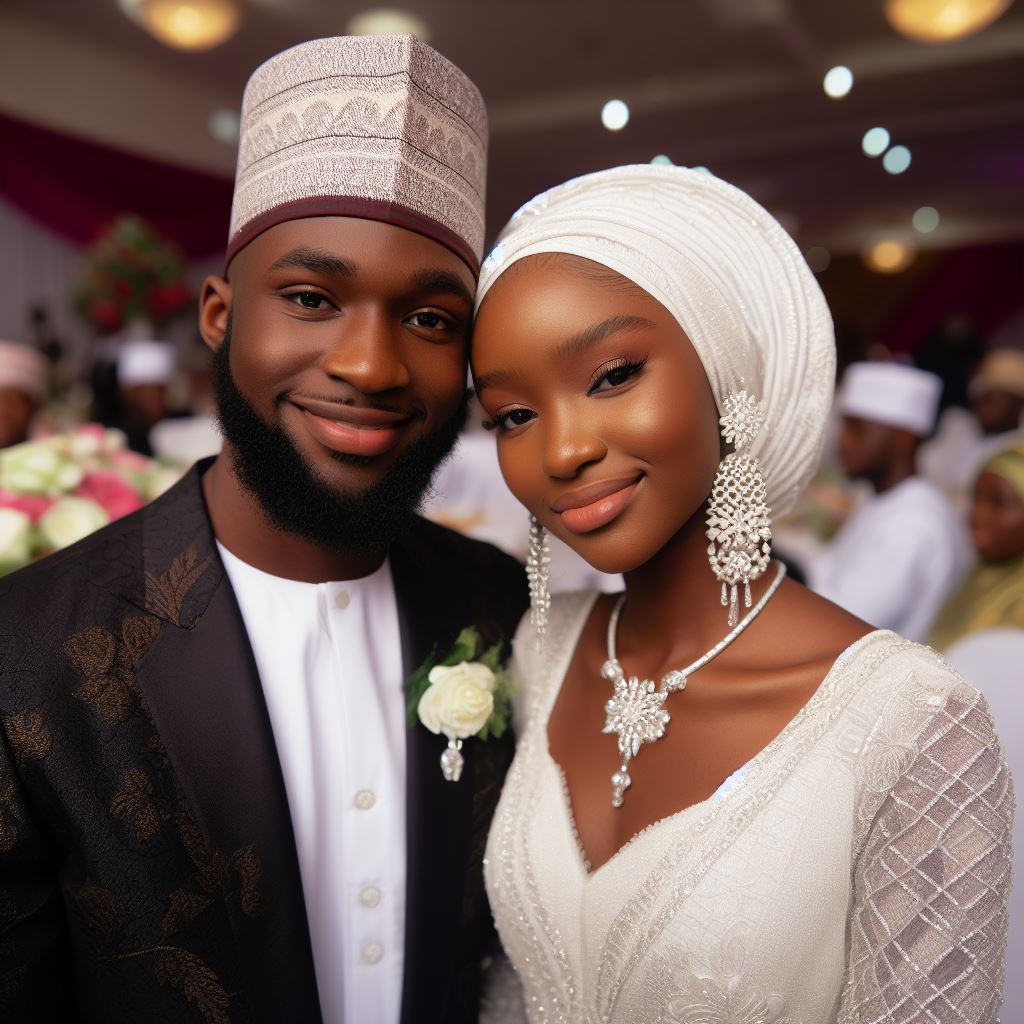
Unique Practices to Mark Muslim Anniversaries in Nigeria
Special Family Gatherings and Feasts
Muslim anniversaries in Nigeria are marked by special family gatherings and feasts where loved ones come together to celebrate the occasion.
It is a time of joy, unity, and togetherness.
During these gatherings, families prepare delicious traditional dishes such as Jollof Rice, Moin Moin, Suya, and a variety of other mouthwatering delicacies.
The aroma of the food fills the air, creating a festive ambiance.
The significance of these gatherings goes beyond the delicious food.
It is an opportunity for family members who may be residing in different locations to reconnect, bond, and strengthen their relationships.
The sense of belonging and community is palpable during these celebrations.
The feast is typically accompanied by lively music, traditional dances, and drumming.
It creates an atmosphere of merriment and joy, with everyone joining in the celebration, irrespective of their age or social status.
It truly reflects the spirit of unity and inclusiveness.
Exchange of Symbolic Gifts such as Engraved Jewelry or Islamic Artwork
Another unique practice to mark Muslim anniversaries in Nigeria is the exchange of symbolic gifts.
These gifts hold special meaning and are often cherished for a lifetime.
Engraved jewelry, such as personalized rings or bracelets, are popular choices for anniversary gifts.
These pieces are often inscribed with Quranic verses, prayers, or the names of the couple and serve as a constant reminder of their love and commitment to each other.
Islamic artwork is also highly valued as a gift during Muslim anniversaries.
Intricate calligraphy, paintings, and tapestries featuring verses from the Quran or scenes from religious events are exchanged to commemorate the occasion.
These gifts are not only a token of appreciation but also a way to express love and strengthen the spiritual bond between the couple celebrating their anniversary.
It showcases the deep-rooted faith and cultural significance attached to these events in Nigeria.
Renewal of Marriage Vows in the Presence of Family and Friends
The renewal of marriage vows is a significant practice during Muslim anniversaries in Nigeria.
It is a public declaration of love and reaffirmation of the marital commitment made by the couple.
In the presence of family and friends, the couple exchanges heartfelt vows, promising to continue their journey together with love, respect, and devotion.
This ceremony serves as a reminder of the sacredness of their union and the importance of nurturing their relationship.
The renewal of marriage vows is often officiated by an Islamic scholar or a respected community elder.
Prayers are recited, blessings are bestowed, and well wishes are expressed for the couple’s future happiness and prosperity.
This practice not only revitalizes the couple’s relationship but also reinforces the value of marriage within the community.
It is a celebration of enduring love, unity, and commitment that inspires others to cherish and uphold their own relationships.
Essentially, Muslim anniversaries in Nigeria are marked by unique practices that reflect the rich cultural heritage and deep religious beliefs of the people.
Special family gatherings and feasts, the exchange of symbolic gifts, and the renewal of marriage vows all contribute to making these celebrations unforgettable and meaningful.
It is a time to rejoice, cherish relationships, and strengthen the bonds of love and togetherness.
Read: Authentic Nigerian Ways to Say Happy Anniversary
Modern Muslim Anniversary Greetings and Celebrations in Nigeria
Adaptation of Western-inspired greetings like “Happy Anniversary” or “Eid Mubarak”
The modern Muslim community in Nigeria has embraced the trend of adapting Western-inspired greetings to celebrate anniversaries.
These greetings, such as “Happy Anniversary” or “Eid Mubarak,” have become popular ways to express well-wishes and congratulations on reaching significant milestones in a marriage or any other occasion worth celebrating.
In the past, traditional Islamic greetings like “JazakAllah Khair” or “May Allah bless you” were commonly used.
However, with the influence of Western culture, the Muslim community has started to incorporate more contemporary language into their celebratory exchanges.
Social media posts and messages to commemorate the milestone
Social media has played a significant role in shaping modern Muslim anniversary celebrations in Nigeria.
Many individuals and couples actively use Facebook, Instagram, and WhatsApp to express joy and gratitude for another year together.
Through heartfelt posts, messages, and even dedicated hashtags, Muslims in Nigeria now celebrate their anniversaries publicly.
They actively express love, appreciation, and commitment, drawing likes, comments, and support from friends, family, and the wider community.
This trend reshapes anniversary celebrations, offering a digital stage for Muslims to share happiness and milestones.
Incorporation of Nigerian cultural elements in anniversary celebrations
Nigeria’s diverse cultural heritage also plays a significant role in shaping modern Muslim anniversary celebrations.
Muslims in Nigeria integrate cultural traditions into anniversary celebrations, setting them apart from global Muslim communities.
For instance, during anniversary celebrations, Nigerian Muslims often showcase traditional attire, music, and dance forms that represent their cultural roots.
They infuse anniversary festivities with local delicacies and traditions, fostering pride and identity.
Nigerian Muslims host community gatherings, inviting friends, neighbors, and family to celebrate together.
These events unite the community, strengthening bonds as they commemorate anniversaries.
Modern Nigerian Muslim anniversary celebrations embrace Western greetings, social media, and local culture.
This fusion of influences creates vibrant, inclusive celebrations representing Nigeria’s cultural diversity.
Celebrations, through posts and gatherings, foster Muslim community bonds and highlight Nigerian traditions.
Read: Intimacy in Islamic Marriages: Guidance for Nigerian Couples
Conclusion
Muslim anniversaries hold great significance in Nigerian society.
Couples, families, and communities come together to celebrate long-lasting, successful marriages during these milestones.
We must appreciate the unique greetings and traditions that have developed over time.
The joyful exchange of “Barka da Zuwa” and the vibrant Kilele dance infuses these special occasions with color and meaning.
It is crucial to continue honoring and celebrating marital milestones in Nigerian Muslim culture.
These anniversaries remind us of the commitment and devotion required to sustain a successful marriage.
Recognize milestones to inspire the younger generation to embrace our cultural values and traditions, strengthening community bonds.
We must remember how unity, love, and support shape relationships, with Muslim anniversaries reinforcing these values.
May we continue to celebrate these milestones with joy and gratitude for the blessings of enduring marriages in our communities.

